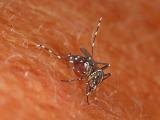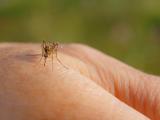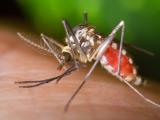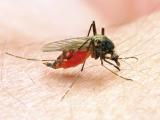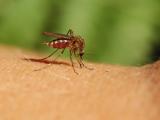Aug 20, 2008 (CIDRAP News) In the largest study so far on long-term outcomes for patients with West Nile virus (WNV) infections, Canadian researchers have found that prognosis is good, though recovery was slightly longer for those with neuroinvasive disease.
The findings, published in yesterday's issue of Annals of Internal Medicine, attempt to flesh out more about the duration of such symptoms as fatigue, cognitive difficulties, and motor impairments, because little is known about prognosis. One previous report, published in 2006, suggested that symptoms can linger several months after infection.
Mark Loeb, MD, MSc, lead author of the study and professor of pathology and molecular medicine at Michael G. DeGroote School of Medicine, McMaster University in Ontario, said in a press release from the school that his group's study is the first to comprehensively explore the long-term effects of WNV in a large patient population. "We found that both physical and mental functions, as well as mood and fatigue, seemed to return to normal in about 1 year," he said.
The longitudinal cohort study included 156 patients from Ontario, Manitoba, Saskatchewan, and Alberta who were diagnosed and treated for West Nile infections in ambulatory clinics between 2003 and 2007. Sixty-four (41%) of the patients had the neuroinvasive form of the disease, while 92 (59%) did not. To follow patients over the course of their illnesses, a research nurse regularly evaluated most patients during home visits; however, participants in Saskatchewan and Manitoba were evaluated in hospital clinics.
The researchers used established, standardized surveys to measure physical function, mental function, mood, and fatigue.
The median length of follow-up was 203 days, and the number of assessments averaged 10. After 12 months, 136 (87%) patients had scored normal on physical or mental assessments at least once. Twenty-nine had both normal physical and mental function tests for 2 consecutive months. The study ended before data from 40 of the patients could be collected. Twenty-five patients stopped participating before the study ended. Five patients died during the study; all had neuroinvasive disease.
The authors write that they expected the patients with neurologic symptoms would have more severe symptoms and longer episodes of depression and fatigue. However, the study revealed that these patients' symptoms and recovery times were similar to those of patients without neuroinvasive disease.
In patients without the neuroinvasive form of the diseases, fatigue normalized within 4 months, which is consistent with the findings of a case series published in 2004, the group reported.
The study also found that patients with preexisting health conditions at the time of infection returned to normal physical function more slowly than those who were in good health when they were struck by WNV. A lack of preexisting conditions and male sex were associated with a quicker return to normal mental function.
Findings suggest that patients with West Nile infections return to normal physical function, mental function, mood, and energy level within about a year of symptom onset. "Our data provide evidence for a favorable long-term prognosis with respect to these outcomes in the average patient," the authors write.
Events unrelated to WNV infection could affect patient outcomes and could mean the study's prognosistic findings are overly optimistic, the authors caution. Also, they say their study was not designed to evaluate neuropsychological difficulties, which one study and selected unpublished reports say can persist. More data are needed to assess that outcome, they note.
The study group concludes that their findings might help patients infected with WNV and their healthcare providers know what to expect about recovery and may also help doctors more clearly gauge the benefits of the interventions they prescribe.
Loeb M, Hanna S, Nicolle L, et al. Prognosis after West Nile virus infection. Ann Intern Med 2008 Aug 19;149(4):232-41 [Abstract]
See also:
Aug 18 American College of Physicians press release
Aug 16, 2006, CIDRAP News story "West Nile impairments can linger, study finds"
